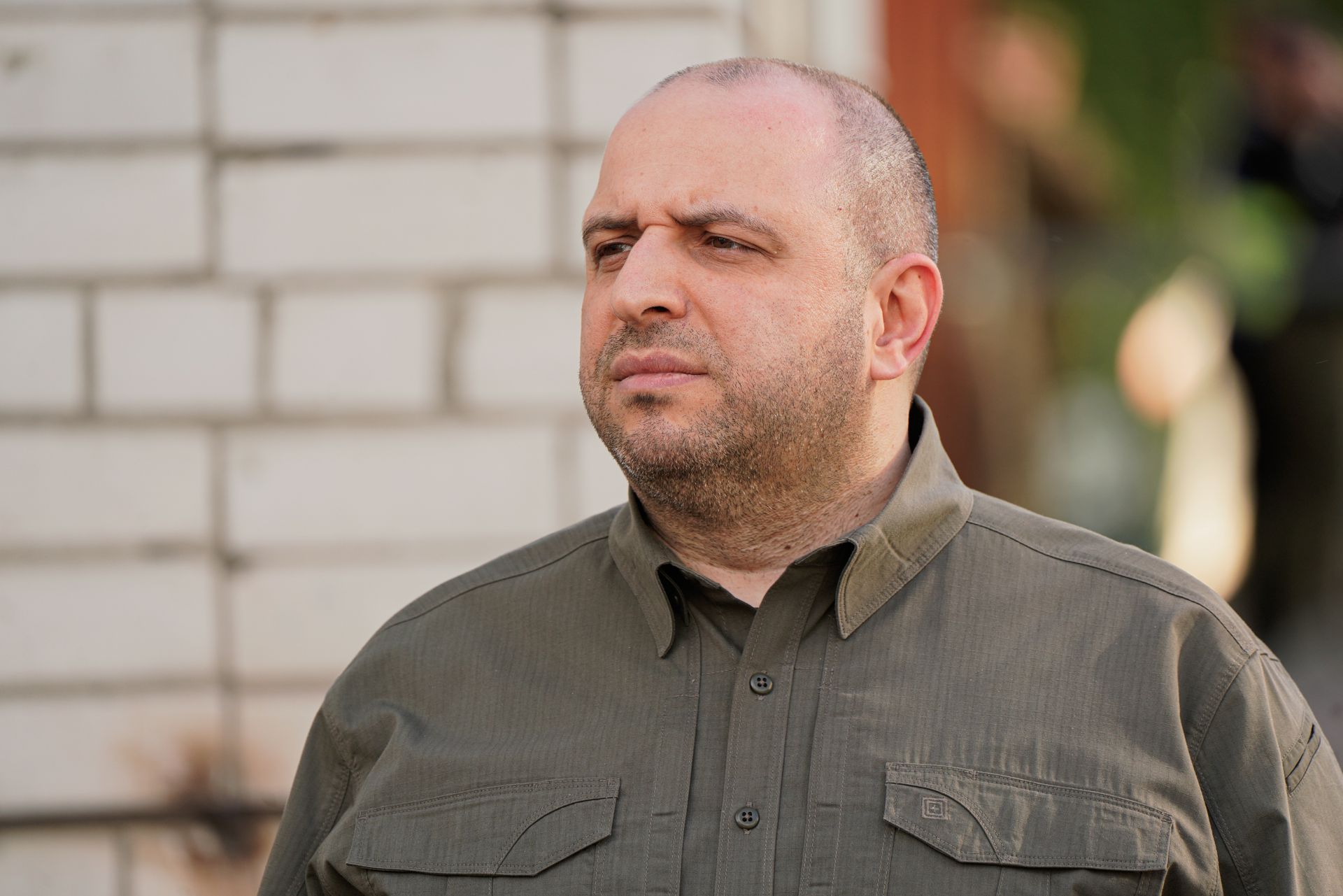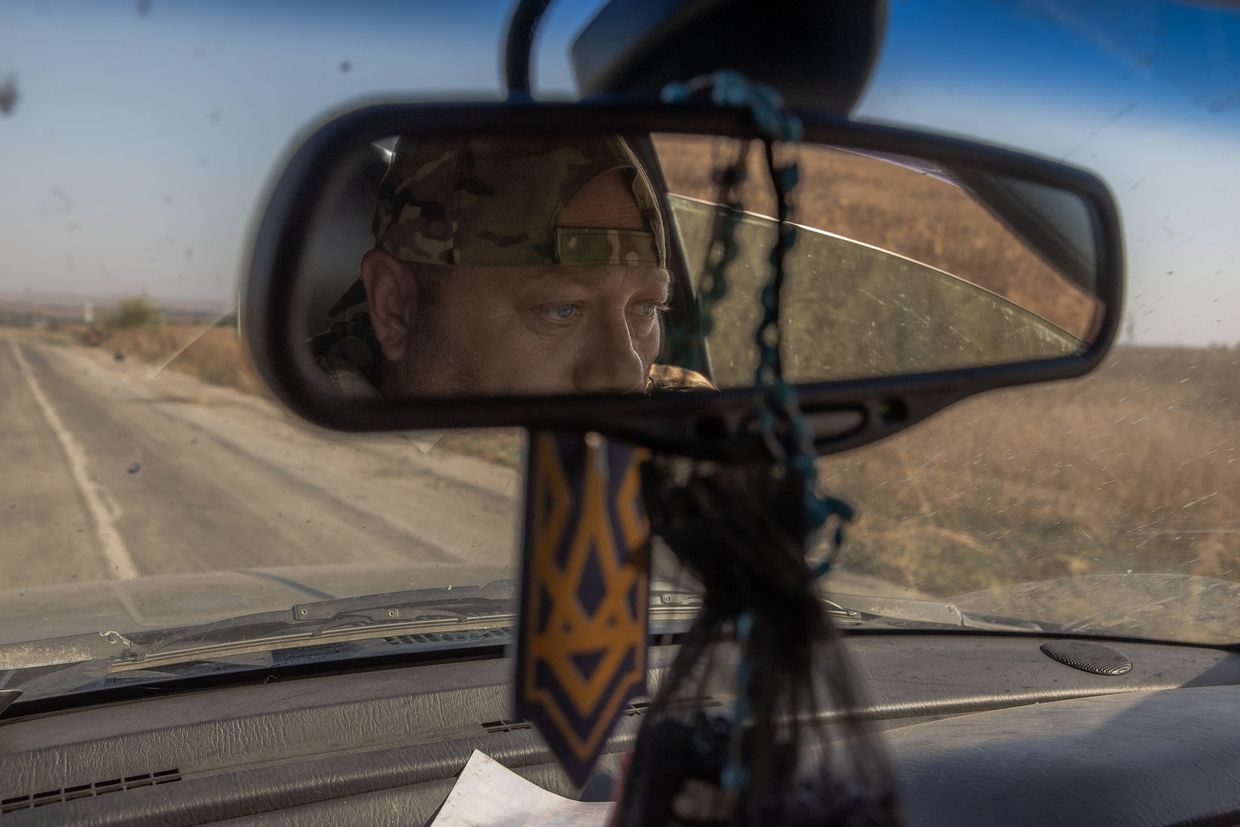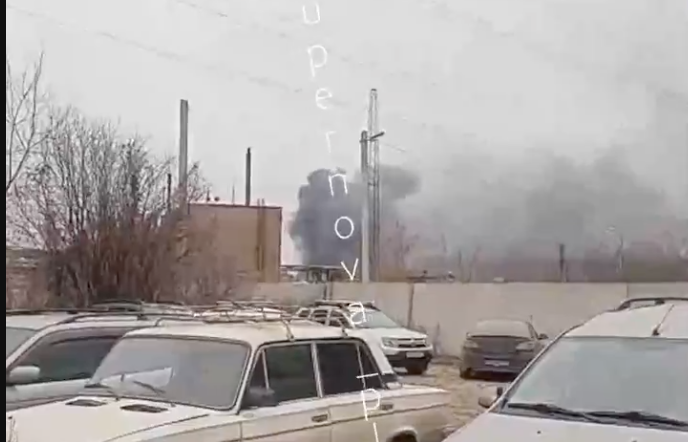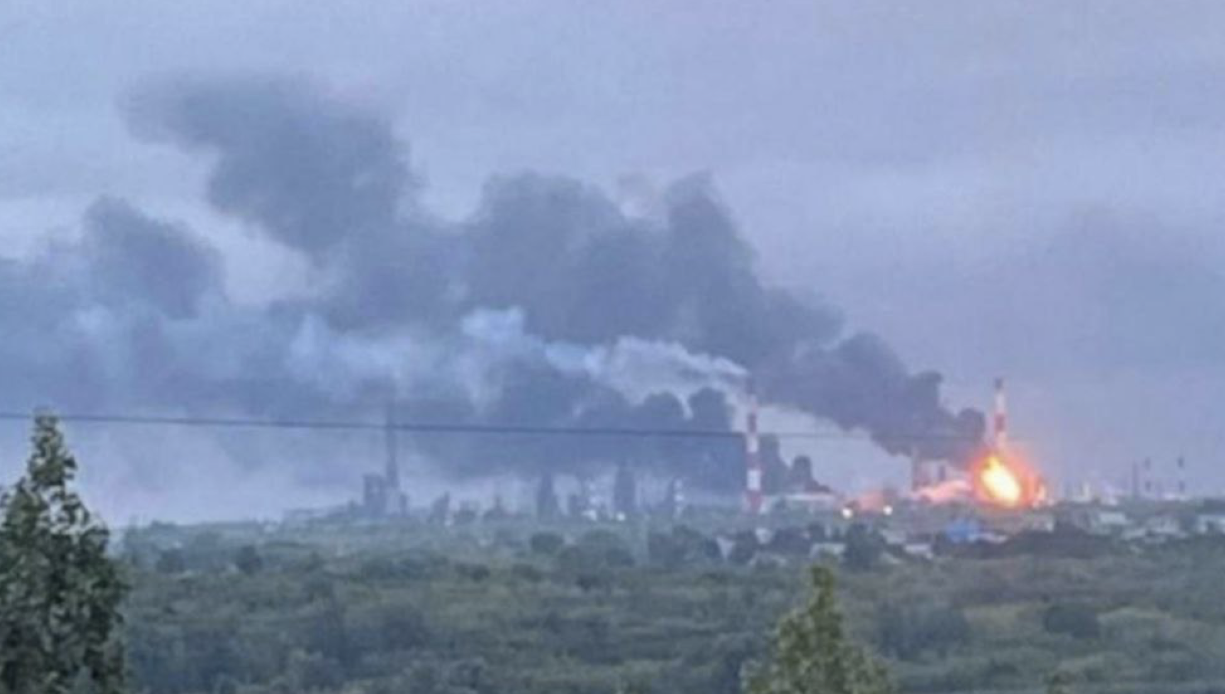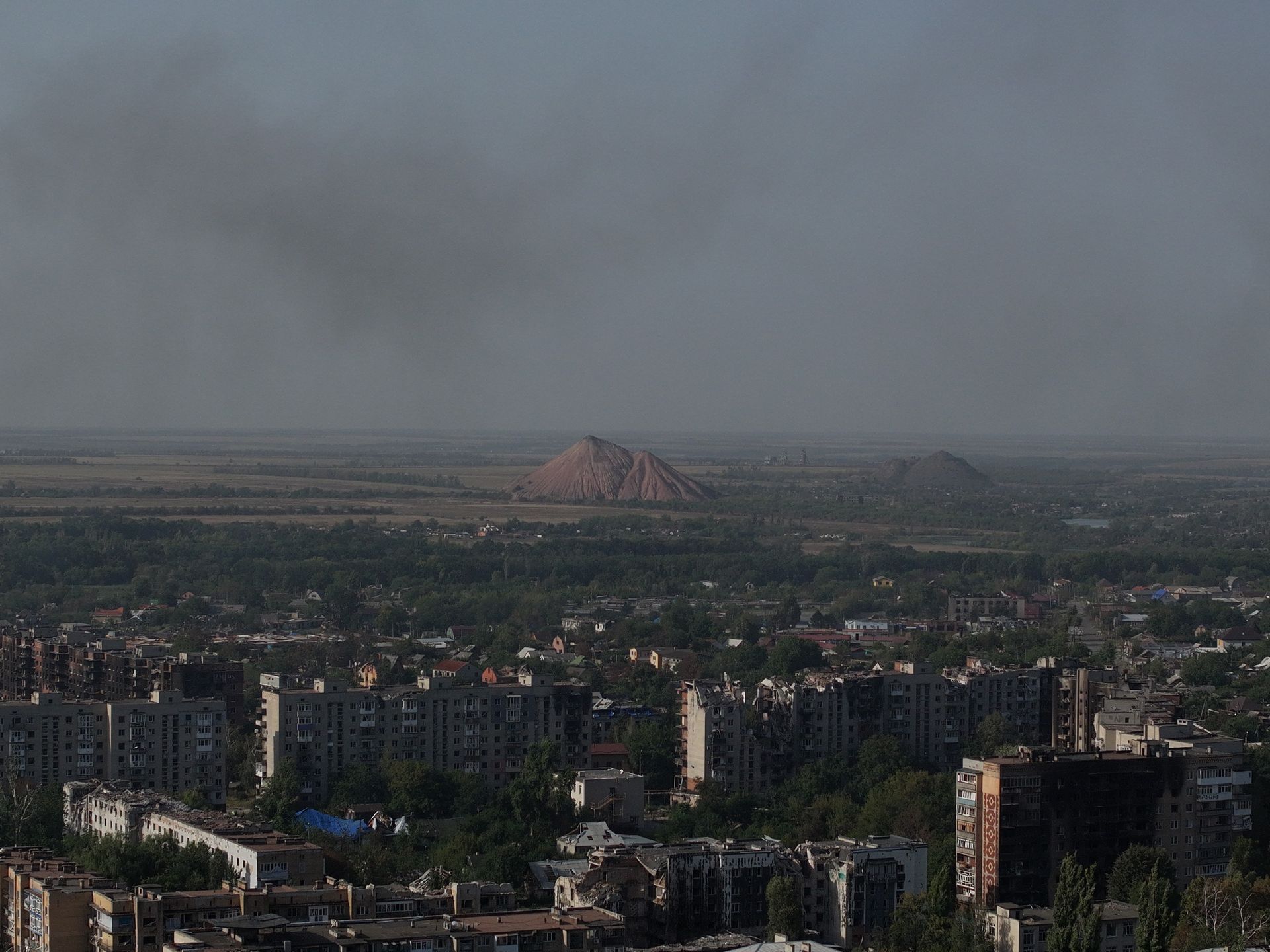Ukraine war latest: Special Forces drones hit oil depots, trains, logistic facilities in Russian-occupied Crimea
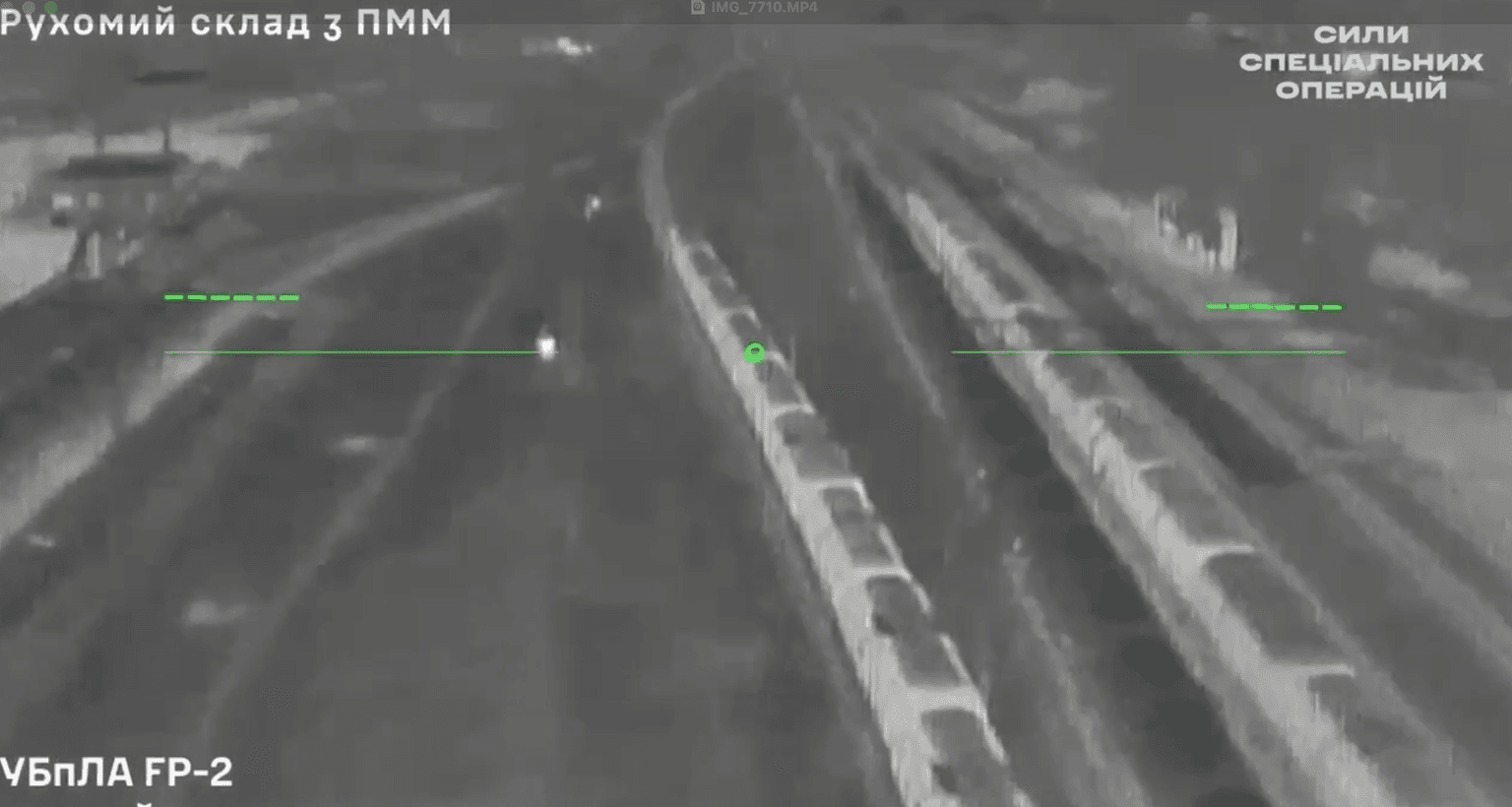
Hello, this is Kollen Post reporting from Kyiv on day 1,353 of Russia's full-scale invasion of Ukraine.
Today's top story so far:
Ukraine's Special Operations Forces (SSO) said on Nov. 7 that its long-range drones struck an oil depot and logistic facilities in the Russian-occupied peninsula of Crimea.
The oil depot near the village of Hvardiiske, just 20 kilometers north of Simferopol, was struck, and a full RVS-400 tank — designed for storing oil, petroleum products, and other liquids — was destroyed, the Special Operations Forces claimed.
"Special Operations Forces continue to act asymmetrically in countering the enemy's military capabilities," Special Operations Forces said in a Telegram post, attaching drone footage of the attacks.
Russian occupational administration in Crimea has not reacted to Ukraine’s claims about the damage inflicted. The Kyiv Independent could not independently verify the SSO's claims.
The SSO claimed that its drones also hit a few oil depots and fuel storage facilities in Simferopol and its surrounding area, as well as two trains with tank wagons loaded with petroleum products at a loading-unloading site.
Zelensky announces mass production of Ukrainian copy of DJI 'Mavic'
Last updated 7:09 p.m. Kyiv time
At a Nov. 7 briefing with reporters in Kyiv, President Volodymyr Zelensky announced mass production of one of the most popular drones of the war, the DJI Mavic.
The government and producers have long teased a "Shmavic" that is fully made in Ukraine, but the Chinese-made and Ukrainian jail-broken DJIs remain remarkably prevalent.
Temporary ceasefire to allow repairs to Zaporizhzhya Nuclear Power Plant
Last updated 7:09 p.m. Kyiv time
Russian-occupied Zaporizhzhyia Nuclear Power Plant is under a localized ceasefire, the International Atomic Energy Agency announced on Nov. 7.
The ceasefire is set to allow repairs to the power supply. The power plant – pre-occupation the largest nuclear generator in Europe – has to be linked to outside electricity that keeps critical functions operating. For an anxiety-inducing month, that linkage was cut, a situation that the IAEA is looking to safeguard against.
Ukraine estimates its long-range weapon production at over $35 billion in 2026
Last updated 5:52 p.m. Kyiv time.
Ukraine's potential for producing long-range capabilities is expected to surpass $35 billion in 2026, although it could also reach as high as $60 billion, Ukrainian officials said on Nov. 6.
In a closed-door briefing with journalists, Rustem Umerov, Secretary of the National Security and Defense Council, and Oleksandr Kamyshin, an advisor on Strategic Industries to the President's Office, said that the current production capacity of the Ukrainain defense industry is around $35 billion per year.
Although Ukraine needs as many drones as possible to defend the country, Umerov and Kamyshin said that part of production will be allocated for "controlled export to friendly countries" as a self-financing measure, meaning sales would generate revenue to reinvest in production.
They said that Ukraine is unable to cover the full cost of domestic defense production either from its budget or through the financial assistance of Western allies.
The statement comes as Kyiv urges Western allies to help finance domestic production of drones and missiles, saying it has the know-how.
Talks with US to procure Tomahawk missiles 'rather positive'
Last updated 5:10 p.m. Kyiv time.
The talks with the U.S. on the potential weapon procurement, including for Kyiv’s long-sought Tomahawk long-range cruise missiles, are "rather positive" at the moment, Ukraine's new ambassador to US Olha Stefanishyna said in an interview published on Nov. 7.
Stefanishyna told Bloomberg that Ukraine has “a lot of delegations” working in the U.S. to gather more funds to procure weapons from the U.S., including for short and long-range weapons, in addition to Tomahawk missiles.
The ambassador’s comment comes as Ukraine awaits a greenlight from the White House on the possible procurement of the Tomahawk missiles. Pentagon has signaled it has sufficient Tomahawk inventory if the White House were to greenlight a transfer to Ukraine.
"First thing that would happen for sure (if the Tomahawk procurement is approved) is that the number of civilians and kids who would be murdered every night would definitely decrease because the aggressor would be deprived of the means to kill Ukrainians," Stefanishyna said in the television interview.
Contrary to Stefanishyna’s comment, U.S. President Donald Trump said on Nov. 2 that as of now, he is not planning to provide Ukraine with long-range Tomahawk cruise missiles.
When asked by reporters if his administration is considering sending Kyiv Tomahawks, Trump responded: "No, not really… things can change but at this moment I'm not."
The Tomahawk is a subsonic long-range missile capable of striking targets at a range of 1,600 to 2,500 kilometers (1,000-1600 miles).
Ukraine’s drones inflict record October toll: 25,000 Russians killed, Zelensky says
Last updated 4:45 p.m. Kyiv time.
Last month — October 2025 — Russia suffered the highest number of monthly casualties from drones since the start of the full-scale invasion, with 25,000 killed, Suspilne reported Nov. 7, citing a briefing held by President Volodymyr Zelensky with Ukrainian media.
Zelensky attributed the number to both enhanced accuracy in reporting due to Ukraine’s “gamification” system of awarding points to drone units and a broader increase in Ukrainian drones at the front, according to Suspilne.
According to the General Staff of Ukraine's Armed Forces report for Nov. 6, Russia has lost around 1,148,910 troops in Ukraine since the beginning of its full-scale invasion on Feb. 24, 2022. The number includes 1,170 casualties that Russian forces suffered over the past day.
Ukraine’s points-based tracking for drone units has evolved into an “online killboard” intended to standardize reporting across units and incentivize performance.
More than 1,400 citizens from 36 African countries fighting for Russia in Ukraine, Sybiha says
Last updated 4:20 p.m. Kyiv time.
At least 1,436 citizens of 36 African countries are fighting for Russia in Ukraine, Foreign Minister Andrii Sybiha said in a post on social media on Nov. 7.
"Russia recruits nationals of African countries using a variety of methods. Some are offered money, while others are duped and do not realize what they are signing up for or are forced to do so under duress. Signing a contract is equivalent to signing a death sentence," he said in a post on X.
According to available information, at least 1436 citizens from 36 African countries are currently fighting in the ranks of Russia's invasion army in Ukraine. The number represents those identified, though the actual number could be higher.
— Andrii Sybiha 🇺🇦 (@andrii_sybiha) November 7, 2025
Russia recruits nationals of African…
Drones hit key Russian petrochemical plant in Republic of Bashkortostan, Ukraine's HUR says
Last updated 4:06 p.m. Kyiv time.
Ukraine's military intelligence (HUR) said on Nov. 7 that its drones struck a key petrochemical plant in Russia's Republic of Bashkortostan, over 1,000 kilometers away from Ukraine's border.
Ukrainian long-range drones struck the Sterlitamak Petrochemical Plant, which supplies the Russian army and Russia's military-industrial complex, including ionol, aviation gasoline, and synthetic polymers, according to Ukrainian military intelligence, which goes by HUR.
HUR claims that the drone strike on Nov. 6 led to a fire in the workshop producing an additive known as agidol, used for aviation fuel. The Kyiv Independent was unable to independently verify the claim.
Head of the republic, Radiy Khabirov, has not commented on the claimed drone strike on the key plant. Throughout the war, neither side has rarely acknowledged the setbacks.
Sweden is funding Ukrainian deep-strike drones as they rattle Russia's oil refineries
Last updated 11:55 a.m. Kyiv time.
Denys Shmyhal, who recently changed roles within President Volodymyr Zelensky's cabinet from prime minister to defense minister, announced Sweden's involvement in funding 400 long-range drones in a Facebook post on November 6.
The funding mechanism is the "Danish model," which typically means that a European nation pays directly for the Ukrainian defense ministry's contracts with a Ukrainian weapons producer.
Shmyhal further said that Sweden had committed $8 billion to Ukraine in 2026 and 2027, on top of $9 billion already handed over. The Ukrainian Defense Ministry's favorite deep-strike drone is the FP-1, which typically costs between $55,000 and $60,000 per unit. Sweden's financing would consequently add up to some $23 million.
Russian attacks kill at least 3 civilians in past 24 hours
A glide bomb attack on Orekhova in Zaporizhzhia Oblast killed a man in his home, injuring his wife as well as two neighbors, regional governor Ihor Fedorov wrote on Telegram.
17 other towns in Zaporizhzhia Oblast fell under Russian fire, with extensive reports of damage to residential homes but no injuries reported officially. Emergency services, however, announced late in the evening that a strike on a residential home had claimed the life of its resident.
In Kherson Oblast, Russian fire killed a 53-year-old man at around 9:30 AM, according to oblast head Oleksandr Prokudin. Other attacks throughout the oblast injured 10, including one child.
Heavy drone attacks in the city of Dnipro struck several residential buildings, injuring six, including three who are in critical care in the hospital, local authorities reported.
Kharkiv Oblast saw wide-ranging Russian attacks on civilian buildings, injuring four residents throughout.
UkrEnergo, Ukraine's electricity utility, announced widespread power cuts in Dnipropetrovsk and Donetsk Oblasts.
General Staff: Russia has lost 1,147,740 troops in Ukraine since Feb. 24, 2022
Russia has lost around 1,148,910 troops in Ukraine since the beginning of its full-scale invasion on Feb. 24, 2022, the General Staff of Ukraine's Armed Forces reported on Nov. 6.
The number includes 1,170 casualties that Russian forces suffered over the past day.
According to the report, Russia has also lost 23,543 (+2) armored fighting vehicles, 66,723 (+65) vehicles and fuel tanks, 34,301 (+13) artillery systems, 78,678 (+248) drones, and 3,993 (+2) units of special equipment.


